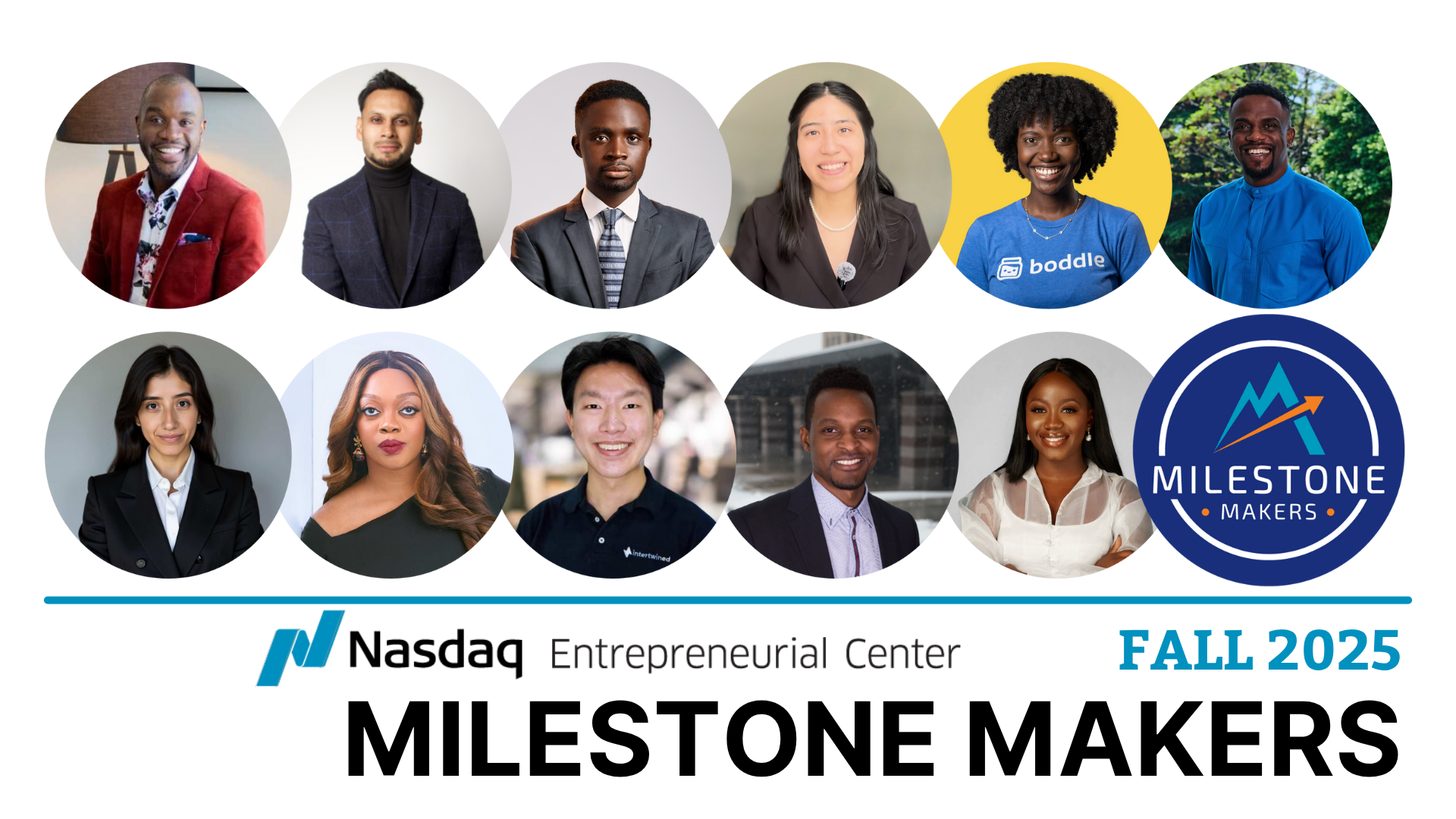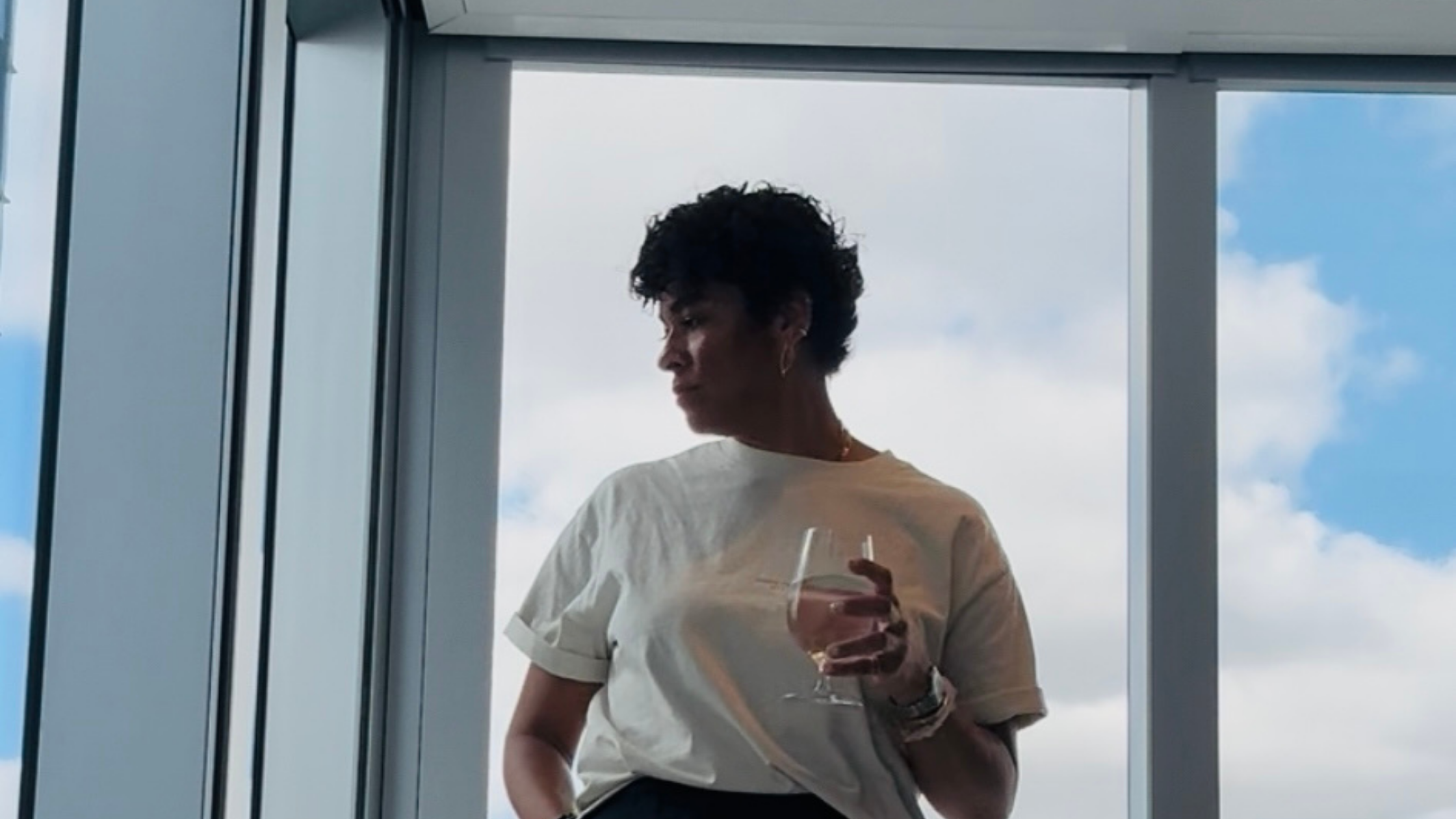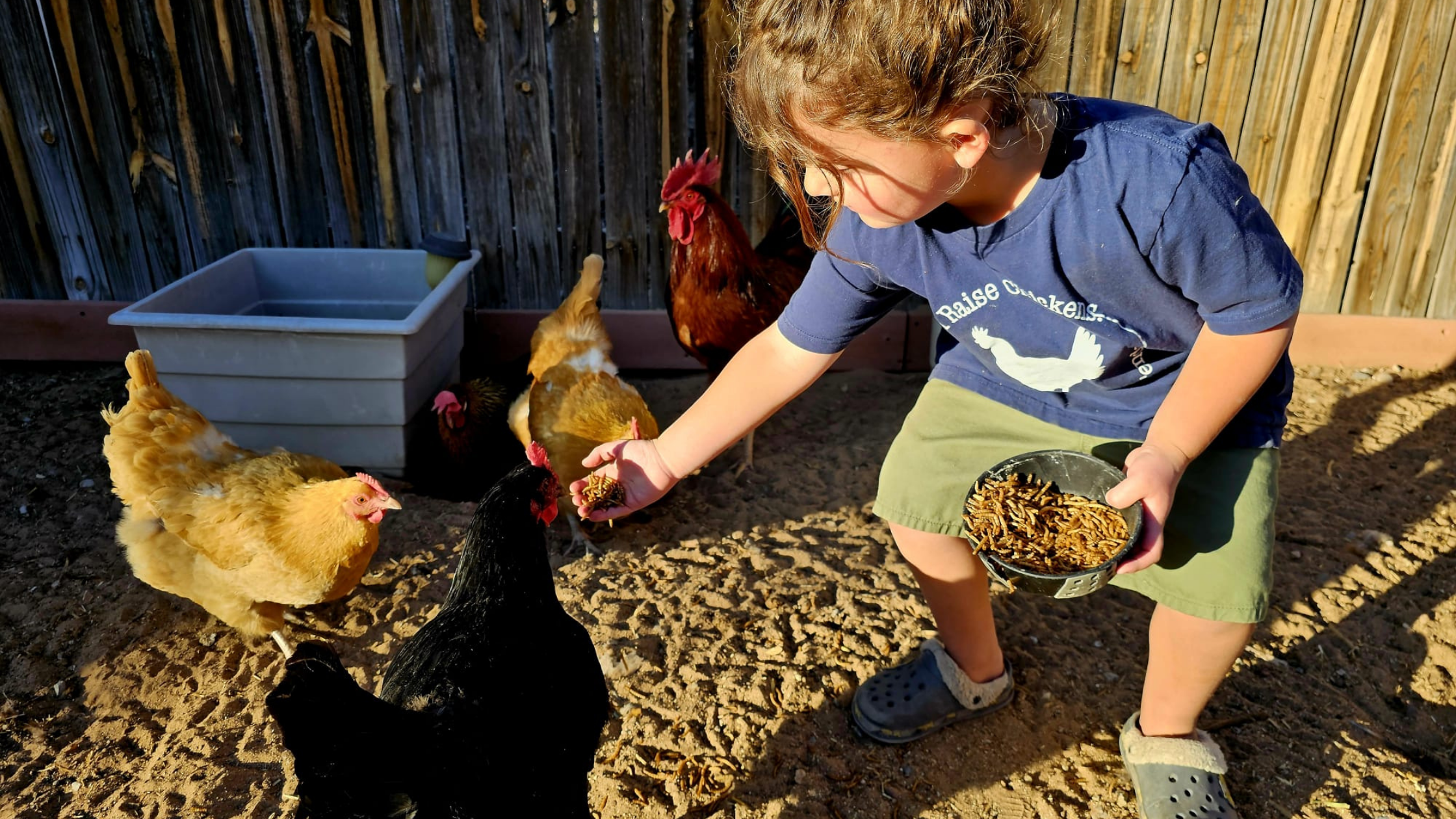NexusEdge is a mentoring and micro-credentialing platform geared towards high school and college students. It’s bridging the learning gap between the classroom and the corporate world, with an eye to democratize opportunity and guide students onto the right career path earlier. Backed by Techstars and already an affiliate of Linkedin, the platform is poised to be the first experience, outside of an internship or fellowship experience (experiences traditionally given to only a select few), where students can interface with professionals and companies in a specific field. Edward Lin, its the co-founder and CEO, took a moment to update the Nasdaq Entrepreneurial Center on the journey as a founder so far.
What does “entrepreneurship” mean to you?
EL: For me, entrepreneurship means recognizing and articulating a large problem with an elegant solution. Many people just subconsciously accept it as a problem that can’t be solved and assume people just have to live with it. The entrepreneur employs irrational optimism, great personal risk, and tremendous effort for that solution.
Entrepreneurship is also the freedom and autonomy to solve something meaningful on your terms, but at the same time embracing the natural uncertainty inherent in large, unsolved problems.
How did your company come to be?
My Co-Founder Shanti and I met 13 years ago at UBS Investment Bank, and since then we both moved to a number of companies and industries over the past decade. We worked in a diverse set of companies and roles, ranging from Goldman Sachs, Adobe, Ticketmaster, Discovery Channel, NY Public Radio, Citigroup etc. The reason why we switched careers so much was because we had such a hard time figuring out what career path fit us best. Then we realized that this is part of a much larger problem impacting millions of people, and there is a global inequity in opportunity where highly talented individuals don’t even get the chance to compete. We wanted to level the playing field so that everyone can figure out what career path would best utilize their passions and everyone can live a fulfilling and economically successful life. We started prioritizing underserved students first, and then I also ended up teaching as well. As such, we made it our mission to democratize access to opportunity so that every student can succeed irrespective of their background.
What is the biggest experience or lesson gained on your journey so far?
EL: The major overarching themes I find most important are: building a great team, understanding your audience, and focus.
The most important one for us would be focus. We used to get pulled into a million different directions, and we had to start saying no more than we said yes; this made it easier for us to scale.
How is your company changing the landscape?
EL: For the first time, students in high school and college are taking direction from their future industries by learning relevant real-life skills within their classroom curriculum. Students connect to employers and get a better sense of what working in a particular field is like. At the same time, they demonstrate to employers they have the ability to succeed at their companies.
Now, it doesn’t matter what your background is or who you know. As long as you’re willing to put in the effort in, you can succeed.
What do you wish you knew when you started? Is there anything you would do differently?
EL: I’m not sure if there’s anything I could have done differently, looking back many of the challenges we faced were an evitable part of testing the market and a function of growth.
What advice/credo do you live by as you grow the business?
EL: Fear is not a Factor.
After graduating from business school, I didn’t want to go back to corporate America, so I thought it would be more fun to be a contestant on the reality TV show Fear Factor. I ended up eating 20 live bees while my teammate was covered in hundreds of thousands of live bees.
I truly believe anyone can eat 20 live bees if they really felt like it – it’s purely mental (except for people allergic to bees). As a result, every obstacle we face in the entrepreneurial world I always say “Fear is not a Factor.”
What advice do you have for fellow entrepreneurs about building and leading teams?
EL: Your team is one of the most critical elements, particularly early on because you’ll likely end up pivoting a good bit anyway. First, don’t just choose your friends because they happen to be conveniently around you. In a small team it’s important that you have complementary skill sets, so you wouldn’t have a team completely made up of MBAs, all creatives, all product managers, etc. You have to be able to cover essentially all the major departments of a larger company except with only a handful of people
Equally as important is putting together a team that works well together. More specifically, I’ve found it always important to have similar values, work ethic, expectations, and trust in each other. We have found some of the values they taught us at the big corporates very helpful as well. They encouraged us to have different perspectives so that we avoid groupthink, but an important cultural value was decision making by consensus. In our work history, we were always taught to put the company’s interests ahead of our individual interests and everyone will ultimately be more successful in the long run.
Fortunately, I also happen to be working with a good friend where we share a similar work ethic, the same standards, different skill set, and someone I trust to get things done.
Where do you find inspiration when faced with challenges?
My co-founder Shanti – she’s as crazy as me. We’ve been friends since the first day of orientation at UBS Investment Bank in 2005, and as a result, she can understand the personal and professional challenges we face daily. I feel very fortunate to be working with her. Sometimes I get stuck on what I find quite a convoluted problem, but after talking through it we often come up with creative solutions much quicker than I would have anticipated.
I also find inspiration from my friend Vanessa, we eat lots of ice cream together after exploiting the sampling system at hipster ice cream shops in Venice, CA.
What does “success” look like for you? What do you think will help you achieve it?
EL: Always talking to strangers – yes that’s right. Talking to strangers has been a critically important part of my life and led to tremendous opportunities. Consistently going up to talk to random people on the street has led to clients, venture capital, and close friendships.
When everyone on this planet is working at a job they love and making great money doing it.
Good people who care about other people have been tremendously helpful to us, and I believe those are the types of people that will continue to carry us forward to the future.
What is your proudest and darkest moment so far? Share a key high and a key low from your journey if you can.
EL: I’ve always found this question very contextual because with each success the bar gets higher. I suppose that’s good because you’re always pushing yourself further. One thing that I think will always go beyond stats is the human element, watching underserved students or adult learners change their career paths and achieve success is something I’m always proud to be a part of. Then some VC says to do it at even greater scale, and then it becomes a key low immediately after being a key high.
There are no dark moments, again, “Fear is not a Factor.”
What lesson did 2018 have for you? What do you look forward to in 2019?
EL: In 2018 we spent a lot of time working with teachers and students in the classroom to make sure we integrated industry content into the classroom properly. In 2019, we’re really looking forward to scaling across the country and beyond.
Many entrepreneurs continue to perfect their daily routines to support their work and greater vision; would you mind sharing your morning routine or a regular ritual that grounds your work each day?
EL: I feel like I should be saying something like, “I wake up outrageously early, then I drink kombucha prior to my meditation and extensive cardio workout running 10 miles…”
The reality is sometimes I wake up at 4:30am and sometimes I go to bed at 4:30am. There are many times when I have to be on a flight to San Francisco that leaves at 6 am and then that same evening I get on a flight to NYC that lands at 7am. There are also times where a major deliverable has to get done before the next morning and you do whatever it takes to get it done.
I think the only consistent part of my day-to-day is embracing the evitable randomness that is the day. I do make sure to scan the news every morning as I think it’s very important to understand macro trends as well as being very aware of current industry news.
What kind of an entrepreneur do you want to be known as, as in, what do you want your legacy to be?
EL: I want to be known as someone who has left a lasting positive impact on humanity by helping those in even the most underserved communities become successful in their careers and happy in life.




